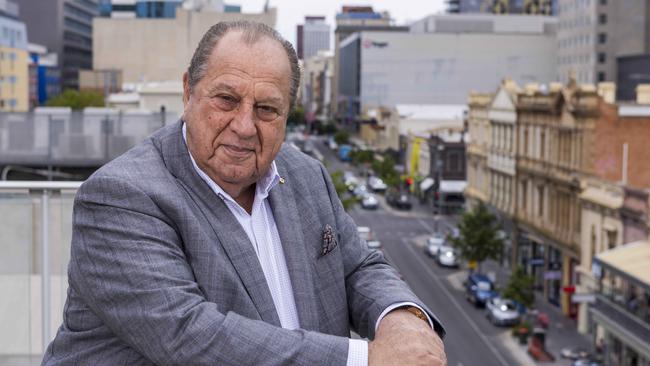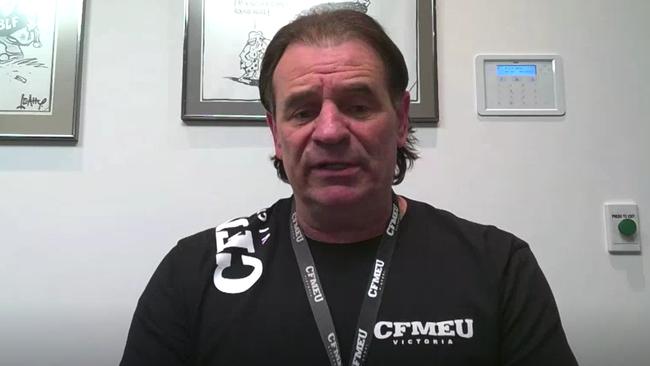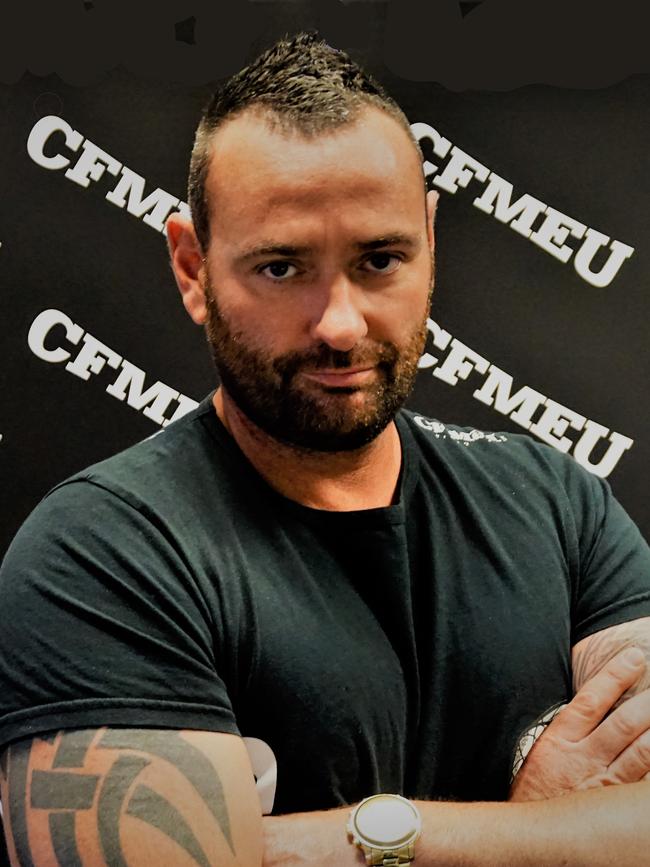Property developer Theo Maras warns SA CFMEU merger could lead to huge wage hike demands, decimate industry
One of SA’s most prominent developers says a CFMEU merger could decimate the construction industry – unless businesses push back against excessive demands.
SA News
Don't miss out on the headlines from SA News. Followed categories will be added to My News.
Prominent Adelaide property developer Theo Maras has warned the South Australian branch of the CFMEU, set to be formally taken over by militant Victorian secretary John Setka, will decimate the industry unless businesses push back against excessive union demands.
Mr Maras raised concerns wages and other costs would soar, which would ultimately hurt business and deprive workers of jobs.
“If you bring in organised unionism to the point where they are demanding a salary hike of 30, 40 per cent, which is what they are doing, it will become unaffordable to build,” Mr Maras said.
He said on average, tradespeople are currently paid a weekly wage of between $2-2,500 — and already wield power over employers because of labour shortages.
“(The union) are now talking over $100 an hour for a tradesperson. That’s $800 a day,” he said. “If you multiply that by five, it’s $4000 a week, $200,000 a year. Piss off.”

The merger follows years of rivalry between the state branches, with Mr Setka calling the SA division “weak c … s” and “f … ing bludgers” in a confrontation that led to the exit of former SA secretary Aaron Cartledge.
The state government has faced criticism for accepting a $125,000 donation from the Victorian branch in the lead-up to the state election, but has resisted calls to return the money.
Mr Maras said: “I don’t think it was appropriate, but it was legal for the government to take the money”, and added he supported Premier Peter Malinauskas’ pledge to ban political donations.
However he said it was up to business – not government – to push back against the union’s demands.

“The government can’t be my protector in this business,” he said.
Property Council of Australia SA executive director Daniel Gannon said there was already significant downward pressure on development, given recent and current pandemic challenges that have resulted in supply constraints, labour shortages and costs rising faster than inflation.
“The property industry is concerned that the current takeover could add further heat to rising costs, which will place even more stress on job-creating development project,” he said.
Mr Malinauskas said he was also concerned about the prospect of a branch takeover.
“We have seen certain practices from certain CFMEU officials in Victoria which have no place in South Australia,” he said.
“Let me be very clear, I condemn thuggish behaviour in all forms.”
He said wages have not kept up with inflation, and it was legitimate for workers to negotiate with their employer in a “sensible and pragmatic way to protect their living standards – but not at the expense of a viable business”.

Acting Opposition Leader John Gardner said: “John Setka and his cronies have been described as tyrants and their style of class-warfare based unionism … threatens to suck the lifeblood out of local industries”.
The Advertiser understands Mr Setka and Victorian president Robert Graauwmans will visit Adelaide next week, when the merger is expected to be formalised. A general meeting is due to be held at the union’s South Terrace headquarters on Wednesday.
CFMEU SA branch divisional secretary Andrew Sutherland said the proposed changes were “not a takeover or anything dramatic at all”, and “bad faith actors should stop attempting to cause industry panic for their own purposes”.
He said changes, described as a “co-operative administration arrangement”, affected only two positions — the SA president and secretary roles, which will “form part of a shared position with the Victorian-Tasmanian branch for a limited and fixed period of time”.
“Enterprise agreements always have been, and will be, handled locally,” he said.
Mr Sutherland said 2022 agreements, such as one signed recently with building giant Hansen Yuncken, have been the result of “hard work by local officials and members to improve conditions”, which he said had been left “decades behind market rates in every other part of the country”.
He said current agreements included “strong, but in no way excessive” wage increases, and if an employer was being asked for a 30 per cent pay rise, it would indicate they have failed to pass on decades of productivity and profit increases.





